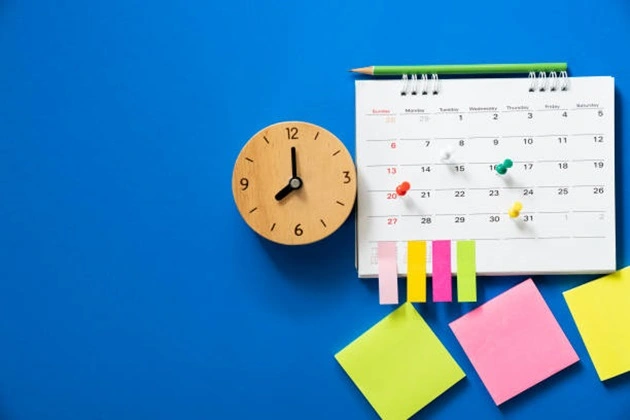When there is not enough time for anything, you should reconsider your habits. With their help, you can streamline your life, helping you achieve what you want. You must apply these methods and tools daily to reach your goals.
9 ways to streamline your life and achieve your goals
1. Keeping a schedule

Using a graph is the first and most obvious way to organize your life. The graph allows you to visualize the current state of affairs, freeing you from the need to keep all the information in your head. With a daily planner or digital calendar, you can plan your day, week, and month, making your life more organized.
Keeping a schedule also helps you avoid forgetting about upcoming events. You will keep track of all relevant tasks and stay informed of the time you need to complete them. You can use your resources more effectively by including time for rest, physical activity, and self-development in your schedule
2. Prioritization of tasks
Not all tasks are equal, and understanding which requires the most attention from you here and now helps you avoid wasting resources. Visit. A F R I N I K. C O M .For the full article. Prioritization techniques such as the Eisenhower Matrix help divide tasks into four categories: urgent and important, important but not urgent, urgent but unimportant, and non-urgent and unimportant. By setting your priorities correctly, you can focus on significant goals and not let the little things distract you from the main thing.
3. Setting a timer for tasks
Your habit of being distracted by other things can interfere with the successful completion of tasks. While working, you can simultaneously view notifications on your phone, chat on social networks, talk with colleagues, or spread your attention on other duties. Setting a timer for each task will help you focus on the process and allow you to meet a specific period.
The “Tomato” method is an excellent tool for maximizing productivity. Its essence is to divide working time into 25-minute intervals, followed by a short break. This not only helps you focus but also prevents burnout. In addition, using a timer teaches you to estimate the time needed to complete various tasks, which allows you to make more precise plans.
4. Delegation of responsibilities
One of the main reasons people don’t achieve their goals is that they try to do too much on their own. Remember that your time and energy are limited, even if you believe you can do your job better than anyone else. You can have the necessary knowledge and skills to handle everything alone without outside help.
But there is a high probability that you cannot bear the burden that you have imposed on yourself. Analyze what tasks you can transfer to others to maximize your resources for strategically essential tasks. When delegating, provide clear instructions and support to maximize efficiency. This way, you will stop worrying excessively that other people’s work results will be worse than yours.
5. Setting clear goals
You need to know exactly what you want to achieve, and it’s best to record your aspirations on paper or in digital format. Use the SMART method: Your goals should be Specific, Measurable, Achievable, Relevant, and Time-bound. Instead of making long-term goals, define your desires more clearly. This will shape your aspirations and clarify the way you need to move.
6. Maintaining order in the work area
Chaos in the environment can lead to chaos in your mind. Being organized not only increases your productivity but also reduces stress levels. Develop a cleaning schedule for the room in which you work, and manage a convenient and understandable storage system so that you know what lies where.
Minimalism in the workspace helps you focus on the main thing, and its aesthetics help you maintain a positive attitude. Also, remember the importance of maintaining order in your tools: clean your phone and computer of unnecessary files, organize your mail, and use cloud storage.
7. Tracking your progress
You need to monitor your progress systematically to move forward more confidently toward achieving your goals. Keep a diary where you can regularly record your achievements and challenges. This will allow you to identify patterns to help you adjust your action plan.
Use digital applications or keep a classic paper diary — choose a format that is familiar to you. It is essential that you can go back to your notes and see how many difficulties you have already overcome on the way to the desired success. This will keep you motivated to keep trying.
8. Rejection of self-criticism
The path to achieving your goals will constantly be zigzagging, and mistakes are inevitable. It is important to remember that failure is part of the learning process and not a reason for chronic dissatisfaction with oneself.
Avoiding excessive self-criticism strengthens your emotional stability and allows you to recover faster after a fall. Learn to separate constructive assessment from non-constructive assessment. Discuss yourself as respectfully as you would with a close friend.
9. Collecting feedback
The people you contact for comments can give you valuable information that will allow you to look at what you are doing from a different angle. Feedback can be provided in the form of constructive criticism or support, but you need to perceive both of its manifestations correctly.
This is the only way to use the data you receive for growth and self-improvement. Don’t be afraid to ask questions, seek professional opinions, and ask those you trust to speak out about something important to you. Having an external view of your actions and decisions opens up new perspectives.
